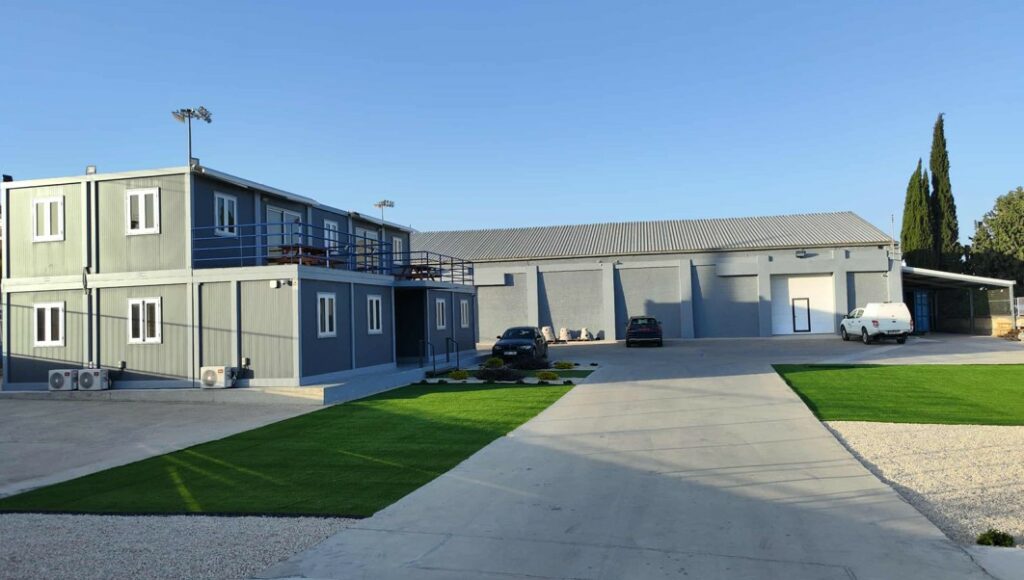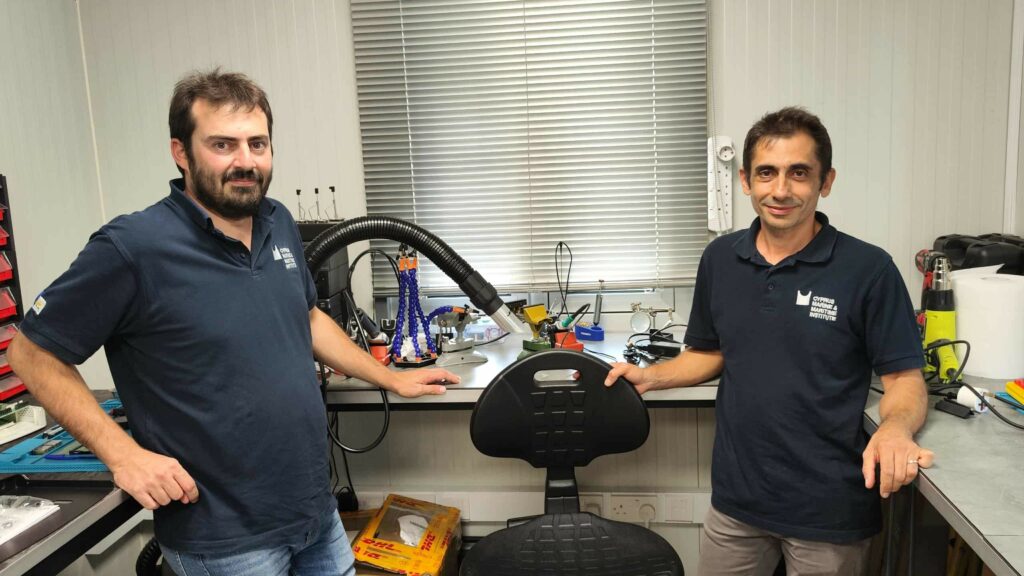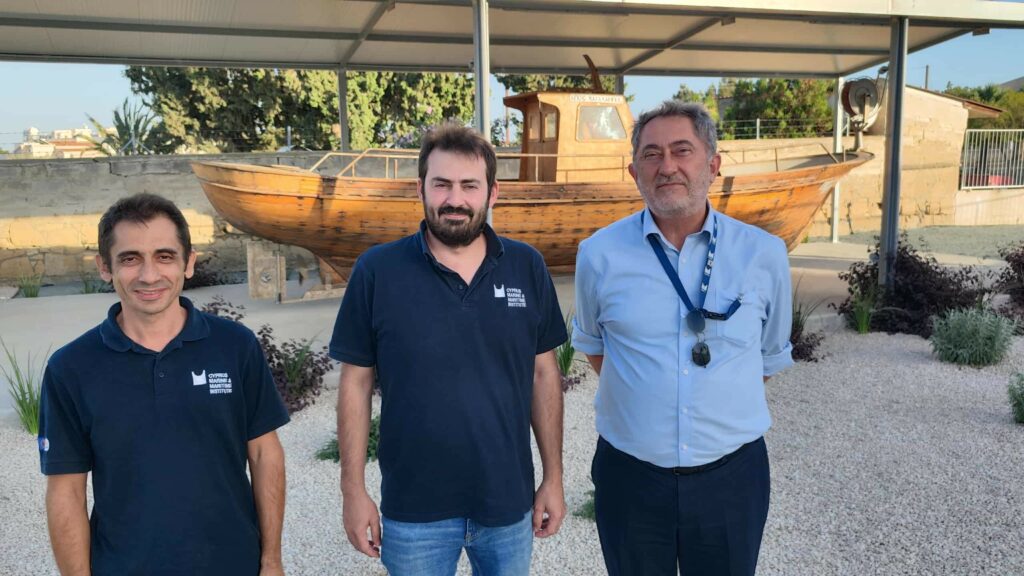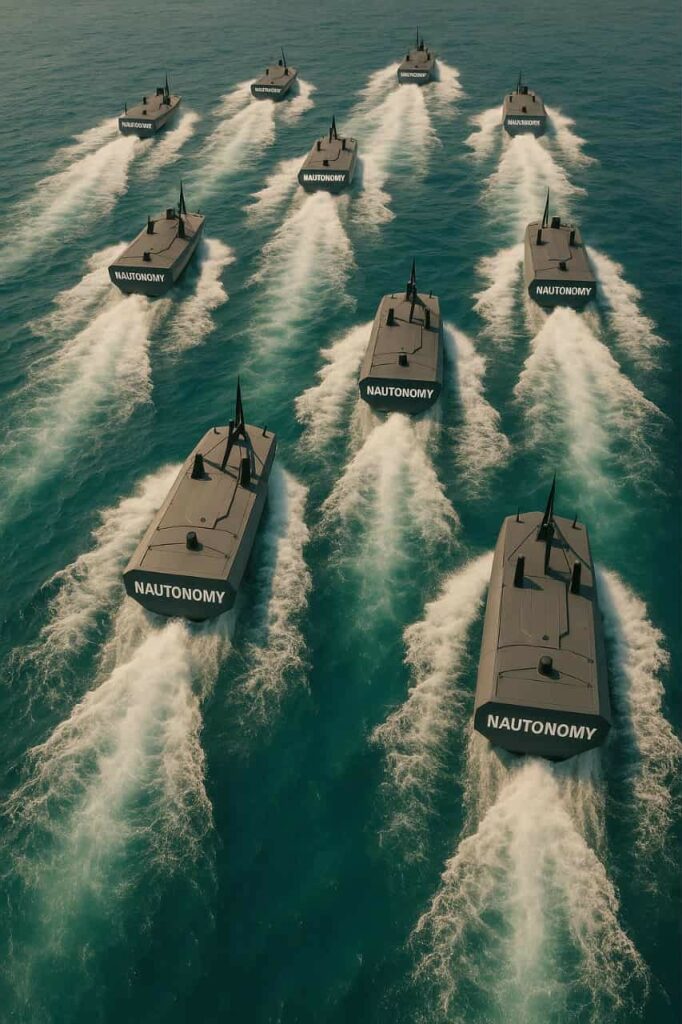The Cyprus Marine and Maritime Institute has launched its first commercial spinout company to manufacture unmanned sea vessels with Cypriot technology for military and civilian applications.
Nautonomy Ltd, established in September, will commercialise autonomous and smart maritime technologies developed by CMMI researchers.
The company plans to produce sea drones—unmanned surface and underwater vessels—that can be used by Cyprus’s defence forces, police and search-and-rescue services, as well as for marine monitoring and protected area surveillance.
“This is a sector developing rapidly worldwide and we’re not behind other countries, unlike in other defence sectors. We can’t build tanks or planes, for example. But we have the capability as CMMI and as Cyprus to make such vessels,” CMMI chief executive Zacharias Siokouros said.

The European Defence Agency director André Denk visited CMMI’s Oroklini facility recently and was briefed on the new company’s plans. Denk expressed satisfaction with the project, as did the Defence Ministry, which is discussing how to utilise the technology for defence purposes, according to Siokouros.
CMMI has been involved in marine robotics and autonomous sea vessels since its inception. The institute is now licensing its unmanned vessel technology to researchers interested in commercial exploitation.
“CMMI grants usage rights for the technology created to researchers who want to get involved in exploiting it commercially. Initially it could be used by Cyprus Police, the Defence Ministry, the Joint Rescue Coordination Centre, but also for non-military uses such as sea monitoring and protection of Marine Protected Areas. We’re already in contact with the Defence Ministry, Police and JRCC,” Siokouros said.

The CMMI chief executive emphasised the centre’s goal to encourage scientists to develop new technologies. Cyprus ranks first in Europe for scientific publications, at 175% above average.
The challenge is developing technologies in areas where Cyprus has capability and securing corresponding funding to produce made-in-Cyprus products, he said.
Nautonomy’s co-founders and directors are Christos Keleshis, an electrical engineer, and Christos Constantinides, a software engineer, with Andri Theodourou as secretary.
Both directors previously worked at the Cyprus Institute, where they created dozens of aerial drones using their own technology, some of which were sold to the Forestry Department and National Guard.
“After 15 years with drones, I discovered CMMI existed and that it had interest in commercialising technology, which interests me greatly. The goal is to reach a point where the team’s engineers will see their designs and prototypes have a future,” Keleshis said.
Constantinides joined CMMI after seven years at the Cyprus Institute, with a vision to see the software they created help the country and be exported beyond Cyprus.
The unmanned vessels can provide remote monitoring for national security, border surveillance and checks for illegal migrant entry, and can assist in protecting critical infrastructure, the scientists explained.
“There are two ways to control the unmanned vessel, either with a remote control or with a computer,” Constantinides said, noting that a drone can remain at sea from several hours to several days depending on its engine.

The company aims to sell the system together with the vessel as a package. Vessels can be manufactured by Nautonomy, by an organisation like CMMI, or through collaboration with external partners such as boat builders, Keleshis said.
The system can control vessels using both conventional energy sources and zero-emission alternatives.
“We’ve done market research and we’ve already been approached by other companies from abroad that have problems with the systems they have on their unmanned vessels,” he said.
Asked whether they ever believed Cyprus could offer them the opportunity to commercialise their own systems, Keleshis pointed out that in their technology sector, where heavy industry is not required, there are no limitations.
Cyprus can create products just as competitively as other countries, he said.

Constantinides stressed that what many believe is not true—that a scientist in Cyprus lacks the expertise of those excelling abroad. “With the trips we made and the people we met, we saw that we’re hardly behind at all,” he said.
CMMI was established in 2020 under the Larnaca municipality during the pandemic with a handful of scientists. It now employs 65 people and has expanded to three facilities in Larnaca city and district.
The institute operates as a centre of excellence for maritime and marine research, innovation and technological development, and has significant international collaborations and programmes with state services.


